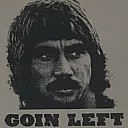Slater the Dictator

Fiji is home to the most jovial folk on the planet, and some of it's most perfect waves, yet it is a volatile little country. In the last twenty years the island nation has undergone four seperate coups (that's one every five years for those that don't have a calculator handy).
The fella who headed the last coup - Commodore Frank Bainimarama – said it was the 'coup to end all coups'. A warning, no doubt, to his enemies who were couping up for the next coup.
Surfing's pro tour has had an equally tumultuous history. Since it's inception in 1976 there has been one succesful coup and numerous insurgencies.
In 1982, Ian 'Kanga' Cairns ousted 'Straight Ahead' Fred Hemmings to wrest control of surfings professional body and give it a new name. Henceforth the IPS became the ASP and punters and pundits alike were happy as it trundled merrily onward.
Then, for the best part of two decades, the ASP enjoyed a period of stability.
During the 90's the movers and shakers of the ASP got with the times and devised progressive strategies to better the sport: the tour split in 1994 and was considered a success; the surfing criteria was refined to allow radical surfing; and in 1999 the 'man with a vision' Rabbit Bartholomew was anointed as President.
The Dream Tour was born.
But behind the outwardly utopian appearance tensions were simmering, and in a short time the pro tour went from a happy little Switzerland to a turbulent little Fiji. Long-running ideological conflicts began to grow. Most notably the surfers were upset that their inherently subjective styles weren't being recognised by an objective judging criteria. That, and the fact they weren't getting paid enough. The ASP were held to blame.
So in 1999 Derek Hynd proposed a breakaway tour that would right the wrongs. His rebel tour - International Surfing (IS) - recruited stars such as Andy Irons, Shane Beschen and Dino Andino, though it never got off the ground. However, the threat to the staus quo was heeded by the ASP and further refinements to the judging criteria were made, as well as an increase in prizemoney.
Then in 2003 nine American World Tour pros broke their ASP contracts by surfing in the non- sanctioned X-Games. Their reasoning was that the ASP was restricting their exposure, while the X-Games broadcast itself to the peole that mattered. That being, non-surfers. A deal was brokered but the incident was another sign that the ASP had only a tenuous hold on professional surfing.
Last week rumours surfaced that the ASP is once again being threatened. This time the news was delivered by the poster boy of professional surfing - Kelly Slater. With forty world tour titles and nine world titles the system is clearly not working for him, so Slater has become the spokesman for a proposed new tour.
According to Slater the new tour will have fewer events, fewer surfers, longer waiting periods and more prizemoney. And the word is that cable sports network ESPN are packaging the tour for webcasting and television viewing. He has also said that the deal is already done, and is due to begin next year.
It's unsure what the new tour will mean for professional surfing: is it heading toward an unstable future with two organisations fighting for power, or will an agreement be reached before the next coup?

